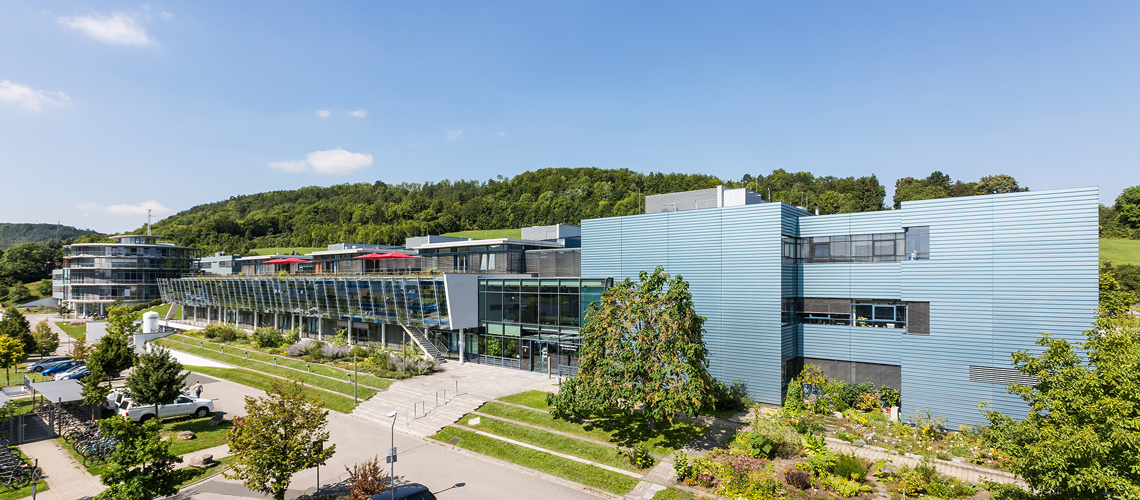Job Offer from July 25, 2023
The Department of Interface Science headed by Prof. Beatriz Roldán Cuenya at the Fritz Haber Institute carries out cutting-edge research on advanced functional materials with applications in heterogeneous catalysis, energy conversion and electrochemistry. By combining unique synthesis methods, state-of-the art tools for experimental characterization and advanced approaches to data analysis, atomistic details of thermal catalysis and electrochemical reactions at gas/solid and liquid/solid interfaces are revealed. In particular, structure-reactivity correlations on nanostructured materials can be established, paving the way for the rational design of novel catalytic materials.
We are currently looking for a PhD student (m/f/d) or postdoctoral researcher (m/f/d) for the Thin Films Group at the Department of Interface Science.
Project: High-accuracy structural characterization of planar model catalysts for reaction studies
The central method in the study is SAS, ‘surface action spectroscopy’, which is only available at the Fritz-Haber-Institute. The method permits to record highly surface-sensitive vibrational spectra in a mode, that enables to use them as fingerprints for a surface structure determination with sub-Angstroem accuracy. Infrared radiation of the free-electron laser (FEL) at the FHI is used to excite the vibrations. Details may be found in the literature.
The activities of the Thin Films Group are focused on studies where well-characterized crystalline model catalysts are employed for catalytic studies. Structure-reactivity relationships and their fundamental understanding are a central topic. Thus, it is important to know the structure of the catalysts in detail and SAS will be one of the characterization methods. A zoo of other methods is available at the Fritz Haber Institute to support the structure determination and to do catalytic reaction studies, partly under operando conditions, see ISC website.
Oxidic model catalysts are grown as epitaxial films (crystalline cobalt, iron and nickel oxides) on metal single crystals; modifications such as defects and addition of dopants may be introduced to investigate their effect on the reaction. Single atom catalysts (SAC’s) made from the above oxide films and small deposited metal aggregates are in the focus of the studies.
The PhD position is funded for three years.
The Postdoc position is initially for one year but can be extended up to three years.
Our requirements
We expect a PhD candidate to have:
- A master degree (or equivalent) in Chemistry, Physics, Physical Chemistry or Chemical Engineering.
- First publications in renowned peer-reviewed journals.
- Knowledge about electrochemistry, ultra-high-vacuum technology and thin film preparation would be profitable.
- High drive to solve scientific and practical/instrumental challenges independently.
- Collaborative spirit and excellent English skills.
We expect a postdoctoral candidate to have:
- A PhD degree in Chemistry, Physics, Physical Chemistry or Chemical Engineering.
- A strong publication record in peer-reviewed journals.
- Experience with ultra-high vacuum technology, XPS, scanning probe microscopy methods, and thin film preparation.
- Knowledge about electrochemistry would be profitable.
- High drive to solve scientific and practical/instrumental challenges independently.
- Collaborative spirit and excellent English skills.
Your application
Please submit your application via our online application portal as soon as possible but latest by September 30, 2023 including the following documents:
- Curriculum vitae
- List of publications
- Letter of motivation
- List of courses and GPA
Applications will be accepted from immediately. We thank all applicants for their interest; however, only those individuals selected for an interview will be contacted.
For more information please contact:
Dr. Helmut Kuhlenbeck (kuhlenbeck@fhi-berlin.mpg.de)
Max Planck Society
The Max Planck Society endeavours to achieve gender equality and diversity. Furthermore the Max Planck Society aims to increase the participation of women in research. Therefore, applications by women are particularly welcome. The Max Planck Society is also committed to increasing the number of individuals with disabilities in its workforce and therefore encourages applications from such qualified individuals.
Berlin
The Fritz Haber Institute (FHI) is located in the quiet south-west of Gemany’s capital Berlin, which is a large, tolerant and cosmopolitan city. Berlin offers a wide variety of culture, art, music, and outdoor opportunities.
